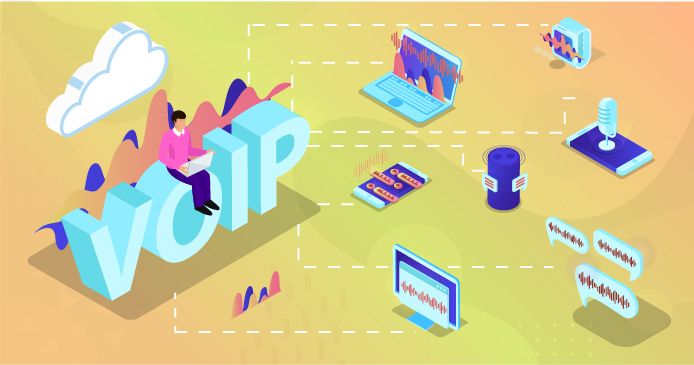What is a VoIP system and how does it work in companies?
7 de septiembre de 2020
Autor: Antonio Alatorre, Chief Technology Officer /Advanced Tech Consultant

A VoIP system or commonly called "IP voice system" is a telephony system through the Internet protocol, which by its acronym is "IP". This technology is the most advanced type of telephony in the telecommunications world. However, although it is the most advanced, it is not the most complex, and it is one of the simplest to implement.
Easy to Implement
Because VoIP systems require much less physical infrastructure than other telephony systems, they are "cleaner" and faster to implement. VoIP systems require essentially "ethernet" type data transmission networks and need an internet supply source to integrate to the public network and achieve the successful connection of calls.
It is due to the proliferation of these new systems that for the last two decades or more, hardware devices such as handsets, switches and servers have been developed that work natively with IP technology. Although in the beginning, the acquisition of this kind of hardware was relatively more expensive than the rest, with the passage of time, prototypes designed for IP telephony have taken a comfortable and amortized cost in the market.
Thus, making it easy to obtain by individuals and companies. Voice over IP systems opened a new horizon in the world of technology, popularizing the use of IP telephony as a new paradigm in telecommunications, and not only in communications in general but also in advanced or state-of-the-art telecommunications.
IP Telephony
The technology behind a VoIP system is IP telephony. This technology is based on the transmission of information (especially voice) via the internet protocol "IP" that operates on internet networks, both local and public (such as the www or world wide web).
Its operation is based on the conversion of voice messages to data and their transmission over a local or public network using the IP protocol over the Internet. In this way, the receiver accepts the information packets and converts them back to "voice" mode through the selected audio codec.
IP telephony is not only capable of transmitting voice messages but also other kinds of data, which is an advantage when considering its use for multiple purposes.
Telephony in the market
Currently most of the telephone systems on the market are analog or digital. However, despite the predominance of these outdated technologies, IP telephony is rising at exponential speeds in the markets, advancing the progress of IP technology and technology in general.
Although it is not yet possible to live with IP technology in its entirety, the expansion of this new method of communication is now evident, and it is irreversibly positioned as the predominant technology in the coming decades.
Business vision
IP telephony applied to companies is not only a vision of innovation, but it is also the most practical option and the most economical solution due to its traditional scheme. Policies in IP telephony are simplified by the flexibility of the service itself, and the scope of many usage options becomes more present as the information gets closer to the communications users.
VoIP systems can sometimes be integrated with digital and/or analog telephony systems, or be 100% based on IP technology.
In any case, one of these systems is sufficient to provide a complete internal and external communication service for a company. From individual commercial entities (entrepreneurs, etc.) to large corporations.
Some of the most notorious services are DID's, 800 numbers, SIP trunks, IP channels, IP phone lines in general and cloud switches with extensions and automatic recording and messaging operator.
VoIP systems are undoubtedly the next step in the generation of communications, and a useful tool from now on.
At Clever IDEAS we have the customized solutions that your company needs to be always connected; from DID's Virtual Line, SIP Trunks Outgoing Calls, Toll Free Toll Free Access Number.
Request your DEMO here.